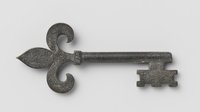In the September 3rd edition of Science∣Business, Julia Reda, German Pirate Party member of the European Parliament (MEP) sitting on the EP Justice Committee, was said to be confident that a mandatory text and data mining (TDM) deal could be introduced for researchers.
This should come as music to the ears of the members of the scientific community, for evidence suggests that Europe’s strict copyright rules have a negative impact on text and data mining activities in academic research compared to other countries with more flexible copyright regimes (see: ‘Is Europe Falling Behind in Data Mining? Copyright’s Impact on Data Mining in Academic Research’ by C. Handke, L. Guibault and J.J. Vallbé (granted the LIBER Innovation Award 2015 and second place at the EPIP Conference 2015)
Reda’s remark is reassuring, after the publication of the EP Justice Committee report on 9 July. As a result of serious compromise between MEP’s, recital 48 of the report merely states that the Parliament ‘stresses the need to properly assess the enablement of automated analytical techniques for text and data (e.g. ‘text and data mining’ or ‘content mining’) for research purposes, provided that permission to read the work has been acquired.’ This watered down text can be regarded as nevertheless positive for at least two reasons: it makes no reference to licensing as a solution for TDM nor to the (non)commercial character of the TDM research activities. Could this pave the way for a useful change in the EU copyright framework?
The call for the introduction of an exception allowing TDM for research purposes in European law is getting louder within the research community, as shown by the adoption on May 6th of the The Hague Declaration on Access to facts, data and ideas for Knowledge Discovery in the Digital Age. Since its launch, the Declaration has been signed by 202 organisations (including among others LIBER, IFLA, EBLIDA, SPARC Europe, Wellcome Trust and Europeana), as well as 442 individuals. It calls for immediate changes to intellectual property law and the removal of other barriers preventing widened and more equal access to data. The signatories of the Declaration urge policy makers to provide legal clarity by ensuring that content mining is not an infringement of copyright or related rights. They believe that the right to read includes the right to mine, but only where individuals have lawful access to that content.
Making adequate room for TDM activities for researchers under the current EU legal framework would entail bringing changes at several levels:
1. To adopt an exception to copyright permitting acts of reproduction of works by means of TDM for research purposes;
2. To adopt an exception to the database right permitting acts of extraction of substantial amounts of the content of databases by means of TDM for research purposes;
3. In both cases, researchers should be authorised to communicate to the public/re-utilise the results of their research;
4. In both cases, the exceptions should be made mandatory in three different ways: a) Member States would be obligated to transpose them into their national legislation; b) any contractual provisions contrary to the exceptions would be null and void; and c) any technological protection measure impeding the exercise of a TDM exception would be unlawful.
With respect to the introduction of an exception to copyright, inspiration for this exception could come of course from the often cited art. 5(3)a) of Directive 2001/29/EC on copyright in the information society, but also from art. 5(3) of Directive 2009/24/EC on the protection of computer programs. Let us recall that art. 5(3) of the Computer Programs Directive authorises ‘the person having a right to use a copy of a computer program (…), without the authorisation of the rightholder, to observe, study or test the functioning of the program in order to determine the ideas and principles which underlie any element of the program if he does so while performing any of the acts of loading, displaying, running, transmitting or storing the program which he is entitled to do’. A parallel between observing, studying and testing the functioning of a program can certainly be drawn with acts of TDM. Note that this provision of the Computer Programs Directive makes no distinction between commercial or non-commercial character of the observation, study or test of a piece of software and that it is one of the few mandatory exceptions in EU copyright law.
With respect to the database right, the EU legislator could envisage repealing the Database Directive altogether, instead of introducing a mandatory exception. The 2005 evaluation report commissioned by the European Commission showed that the Directive had not remotely brought about the results expected of it. Perhaps is it time to repeal it before it generates more damage to the scientific community!
The poll is accessible below. You may also access the poll in the upper right corner of this website. Your responses are anonymous, although you may include your name and email address at the end of the poll, if you wish. We will compile the results in a special post on the Blog.
[SURVEYS 4]
________________________
To make sure you do not miss out on regular updates from the Kluwer Copyright Blog, please subscribe here.



